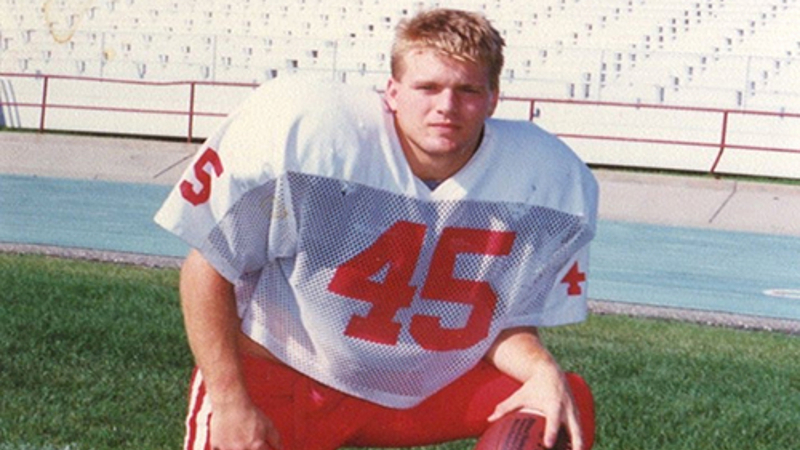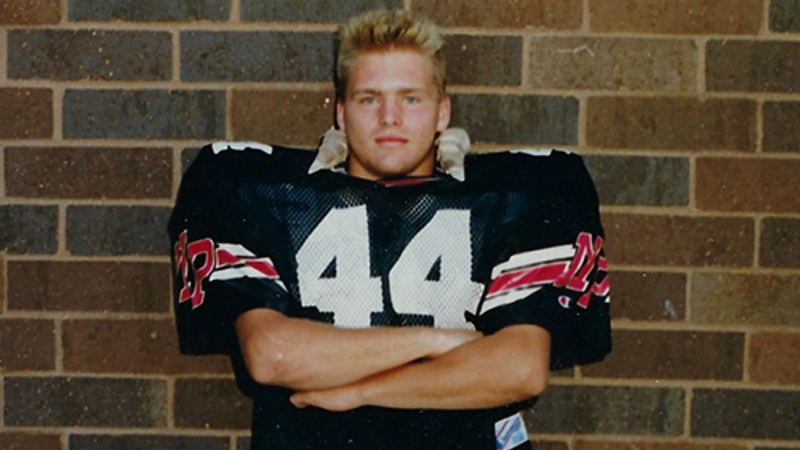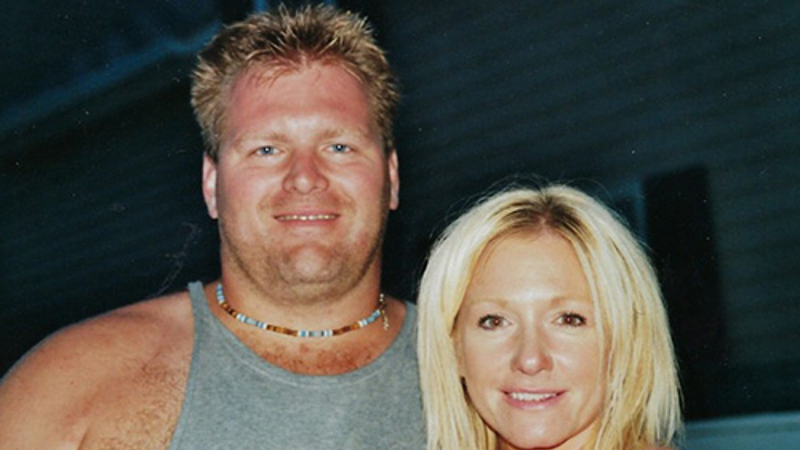Greg Stanke played college football for North Dakota State and Minnesota State University as a linebacker. After his collegiate career, Stanke trained horses and competed in mounted shooting competitions. After a horseriding accident in May of 2018 where he was thrown from the horse and hit his head, Stanke developed severe cognitive and psychological issues before taking his own life at the age of 48. After his death, researchers found his brain showed signs of the early stages of Chronic Traumatic Encephalopathy (CTE). His family shares Stanke’s story to educate others on CTE and that the disease impacts far more than just NFL players.
Our little West Fargo farmstead became the most unsafe place on earth for our family last summer, but we didn’t expect the nightmare to end with Greg’s death.

Greg was a linebacker for the North Dakota State Bison and for the Minnesota State University-Moorhead Dragons. He first played tackle football in junior high before starring for his high school team in his hometown of New Prague, Minnesota. After his football career, Greg remained just as competitive, training horses and competing in Cowboy Mounted Shooting in Minnesota and North Dakota all his adult years.

Difficulties and conflicts came slowly and insidiously over the last few years. On May 5, 2018, Greg was knocked unconscious when he came off his horse running at top speed and hit the ground head-first. The months that followed brought turmoil and heartbreak as we, Greg’s family, became entangled in a confusing, bizarre nightmare, ending with Greg’s suicide on September 11, 2018.
Pathology results showed signs of early-stage Chronic Traumatic Encephalopathy (CTE): the stages associated with personality changes, impulse control and depression. Greg’s brain was being assaulted by two levels of damage: at least one recent major head trauma as well as a degenerative disease caused by repetitive head impacts, which for Greg started in his early years.
It was only after Greg’s death that we learned that early-stage CTE causes degeneration in regions of the brain that in similar diseases have been shown to cause psychiatric symptoms like depression and anxiety.

We would be having a very different conversation today if it weren’t for what I learned from the Concussion Legacy Foundation.
Before Greg died, I had no idea a person’s concussion symptoms could be emotional instead of physical. Aside from headaches and fatigue, Greg’s repeated complaint was that he was “just so frustrated.” I thought CTE was only an NFL problem, never once thinking the brain disease could happen to anyone with a history of repetitive head trauma.

Because of this lack of knowledge, I didn’t request to have Greg’s brain sent to the UNITE Brain Bank in Boston. I had the medical examiner send what small samples of tissue he routinely retained to researchers to search for any signs of damage. Tau protein was found that was consistent with early-stage CTE, but the researchers needed the whole brain to get an official diagnosis.
Knowledge can save lives, but it can also heal the broken hearts of family members who get answers in a diagnosis after losing a loved one.

CTE can only be diagnosed after death. Every year, we will hold a fundraising campaign in Greg’s name to support the efforts of Concussion Legacy Foundation because they help fund the research at the VA-BU-CLF Brain Bank. Researchers there are working tirelessly to find a way to diagnose CTE in the living and ultimately cure it.

Click here to donate to support CTE research in honor of Greg Stanke’s Legacy.
If you are struggling to cope and would like some emotional support, call the Suicide & Crisis Lifeline at 988 to connect with a trained counselor. It’s free, confidential, and available to everyone in the United States. You do not have to be suicidal to call.

